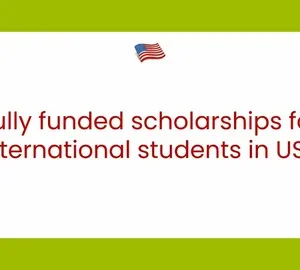Outline
Introduction
-
Why Your GPA Isn’t the End of the Story
-
What Are Merit-Based Scholarships Anyway?
-
Why Merit Scholarships Aren’t Just About GPA
-
How a 2.8 to 3.0 GPA Can Still Impress Selection Committees
-
Secret 1: Leverage Your Personal Story
-
Secret 2: Dominate in Extracurriculars
-
Secret 3: Showcase Killer Recommendation Letters
-
Secret 4: Master the Personal Essay
-
Secret 5: Build a Unique Online Portfolio
-
Secret 6: Apply to Niche Scholarships
-
Secret 7: Prove Growth, Not Perfection
-
Secret 8: Ace Standardized Tests
-
Secret 9: Volunteer and Document It Well
-
Secret 10: Reach Out to Scholarship Committees
-
List of 15 Scholarships You Can Win with a Low GPA
-
Conclusion – Rewrite the Rules of Scholarship Success
-
FAQs – Common Questions on Low GPA Scholarships
Introduction – Why Your GPA Isn’t the End of the Story

So, you’re sitting with a 2.8 or maybe a 3.0 GPA and wondering: “Can I still get a merit-based scholarship?” Short answer: YES, you absolutely can.
Many students fall into the trap of believing that only straight-A students get scholarships. But here’s the truth—scholarship providers are looking for more than grades. They want passion, commitment, leadership, and yes, even resilience. Your low GPA doesn’t disqualify you; it simply challenges you to show value in other ways.
Let’s dive into the secrets.
What Are Merit-Based Scholarships Anyway?
Merit-based scholarships reward students based on achievement—but not just academic achievement.
They might look at:
-
Leadership in school clubs
-
Exceptional performance in sports
-
Artistic talent
-
Volunteer service
-
Overcoming adversity
A merit scholarship simply means you’ve earned it through what you do, not necessarily how you perform on paper. And guess what? That opens the door to students with lower GPAs who shine in other ways.
Why Merit-Based Scholarships Aren’t Just About GPA
Here’s the inside scoop: most merit-based scholarships committees take a holistic approach.
They often balance:
-
GPA
-
Test scores
-
Essays
-
Recommendations
-
Personal background
They’re not just looking for book-smart students—they want leaders, innovators, change-makers.
So, while a high GPA helps, it’s just one piece of the pie. A 2.8 GPA with impressive life experiences and a compelling essay can outshine a 4.0 with no personality.
How a 2.8 to 3.0 GPA Can Still Impress Selection Committees
Let’s break down what committees might see in your “average” GPA:
✅ Consistency Over Time
Maybe you started off slow but improved each year. That shows growth.
✅ Challenging Courses
Took AP or honors classes? Even with a 2.8, that proves ambition.
✅ Contextual Challenges
Maybe you had family responsibilities or health issues. If your GPA reflects a tough journey, committees listen.
It’s not about the number. It’s about the story behind the number.
Secret 1: Leverage Your Personal Story
Your story matters more than you think.
Were you the first in your family to attend college? Did you work a job while juggling school? Did you fight through personal adversity?
Own it. Share it. Humanize it.
Scholarship essays that tell a raw, honest, and inspiring story can move a committee to tears—and to action.
💡 Tip: Tie your story into your career goals and how the scholarship will help you give back.
Secret 2: Dominate in Extracurriculars
Did you:
-
Lead your debate club?
-
Organize a school fundraiser?
-
Play varsity sports?
Extracurriculars show passion, time management, and leadership—qualities that many scholarship providers value even more than GPA.
📌 Bonus Tip: Keep records. Awards, positions, and photos are proof of impact.
Secret 3: Showcase Killer Recommendation Letters
Your teachers, coaches, or community leaders can become your biggest advocates.
A powerful letter might say:
“Despite academic challenges, this student is one of the most determined and driven individuals I’ve met.”
Make sure your recommenders highlight:
-
Your resilience
-
Your growth
-
Your impact beyond academics
Let them paint the real you.
Secret 4: Master the Personal Essay
This is your golden ticket.
A great essay should:
-
Tell your story authentically
-
Show how you’ve grown
-
Be personal, not generic
-
Align with the scholarship’s values
🔥 Pro tip: Start with a moment of struggle or triumph. Hook the reader emotionally.
Essay Example Starter:
“I never expected a part-time janitor job to teach me how to lead. But every 5 AM shift made me stronger.”
Secret 5: Build a Unique Online Portfolio
Today, digital presence matters.
Create a basic website or a LinkedIn page showcasing:
-
Projects
-
Volunteering
-
Awards
-
Personal statement
-
A short video introduction
If your GPA doesn’t impress, your online brand can. This works especially well for creative, entrepreneurial, or tech-savvy students.
Secret 6: Apply to Niche Scholarships
There are thousands of small, often overlooked merit-based scholarships waiting for the right candidate.
Examples:
-
Merit-based scholarships for left-handed students
-
Minority or first-gen merit-based scholarships
-
Scholarships by hobbies or field of study
-
Faith Merit-based scholarships
These have fewer applicants and often care more about passion than GPA.
🔍 Use sites like:
Secret 7: Prove Growth, Not Perfection
Colleges and scholarship committees admire progress.
If your transcript shows a 2.4 GPA in freshman year but rises to 3.0 by senior year—highlight that.
Growth shows:
-
You can learn
-
You don’t give up
-
You’re trending upward
Add a short note to your application explaining this rise.
Secret 8: Ace Standardized Tests
ACT/SAT scores can balance out a low GPA.
Example: If you scored 30+ on the ACT or 1300+ on the SAT, you’re telling committees, “I’m academically strong, even if my GPA doesn’t reflect it.”
📘 Study resources:
-
Khan Academy (Free)
-
Magoosh or Princeton Review (Premium)
Secret 9: Volunteer and Document It Well
Volunteering shows empathy, responsibility, and leadership—traits every scholarship provider respects.
Whether it’s:
-
Soup kitchens
-
Tutoring programs
-
Environmental clean-ups
Document your service:
-
Take photos
-
Get letters from supervisors
-
Log your hours
Some merit-based scholarships are designed specifically for volunteers.
Secret 10: Reach Out to Scholarship Committees
Yes, you can actually contact scholarship providers.
Say something like:
“I’m really passionate about your organization’s mission. My GPA is a 2.9, but I’ve led multiple community projects. Would you still encourage me to apply?”
It shows initiative—and sometimes they’ll offer advice or even make exceptions.
List of 15 Scholarships You Can Win with a Low GPA
| Scholarship Name | Minimum GPA | Amount | Focus Area |
|---|---|---|---|
| Cappex Easy Money Scholarship | None | $1,000 | Open to all |
| Unigo “All About Education” Scholarship | None | $3,000 | Essay-based |
| Taco Bell Live Más Scholarship | None | $25,000 | Creative submission |
| Courage to Grow Scholarship | 2.5 | $500 | Personal essay |
| Gen and Kelly Tanabe Scholarship | None | $1,000 | Essay-based |
| Nitro Scholarship | None | $2,000 | Quick application |
| Discover Student Loans Scholarship | None | $5,000 | Monthly draw |
| Christian Connector Scholarship | None | $2,500 | Faith-based |
| Redfin Scholarship | 2.5+ | $2,500 | Essay on housing |
| SuperCollege Scholarship | None | $1,000 | All students |
| Doodle for Google | None | Up to $30,000 | Art/design |
| Create-A-Greeting-Card Scholarship | None | $10,000 | Design-based |
| Make Me Laugh Scholarship | None | $1,500 | Humorous essay |
| Return2College Scholarship | None | $1,000 | Adult learners welcome |
| DoSomething.org Campaign Scholarships | None | $1,000–$5,000 | Action-based |
Conclusion – Rewrite the Rules of Scholarship Success
If you’ve got a 2.8 to 3.0 GPA, you haven’t hit a wall—you’re standing at the starting line of a different route.
It’s time to play smart. Highlight your strengths, share your story, and apply relentlessly. There are scholarships out there specifically for people like you—students with grit, purpose, and a whole lot of potential.
So go on—prove them wrong.
FAQs – Common Questions on Low GPA Scholarships
1. Can I get a full scholarship with a GPA under 3.0?
Yes! While rare, some full-ride scholarships are awarded based on talent, leadership, or financial need rather than GPA alone.
2. Do all scholarships require essays?
Nope. Many merit-based scholarships don’t need essays—just forms, resumes, or creative submissions.
3. Are community college students eligible for merit-based scholarships?
Absolutely. Many merit-based scholarships welcome applications from both community college and four-year university students.
4. Should I mention my low GPA in the essay for merit-based scholarships ?
Yes—but spin it. Show how you’ve grown, what you’ve learned, and how it doesn’t define your future.
5. How many merit-based scholarships should I apply to?
As many as you can. Aim for at least 10–15 well-targeted ones. The more you apply, the better your odds.




